




For 40 years, Indaver has been creating value from waste. Every year, we push a step further and recover even more useful materials and clean energy from the waste streams generated by industry and households.
Our focus on value creation from waste is more relevant today than ever because our society is facing several crises, including the energy crisis, climate change and geopolitical unrest. The solutions to some of these problems can be found in the circular economy. Therefore, as one of the largest waste managers in Europe, Indaver will continue to play an active role in the transition to a circular economy –for the good of everyone.
We do this by looking at waste from a different perspective. For us, waste is first and foremost a valuable source of new raw materials. We aim to recover raw materials that our economy explicitly needs. This implies keeping closed material cycles clean by removing contaminants. Moreover, in all our activities, we maintain a strong focus on efficient energy recovery.
You can read exactly how Indaver fulfilled its essential social role in 2024 in this review.
Indaver managed 5.6 million tonnes of household and industrial waste streams in 2024. Through the use of innovative technologies – which we are continuously improving to optimally protect people and the environment – we derive maximum value from these complex waste streams.
The Earth’s natural resources are dwindling. Added to this, Europe is dependent on other regions for the supply of critical materials. To address these pressing issues, Indaver is investing in installations to recover valuable and/or scarce materials from waste. We are targeting scarce materials such as precious metals, basic chemicals, solvents, compost, etc. From the ashes that remain after thermal processing of the waste, we extract useful end products for the construction and metal sectors, among others.
Few subjects are as important to the future of our planet as energy. We all need to consume less energy and generate the energy we do consume more sustainably. Indaver contributes to efficient consumption by extracting energy from waste processing and using it for our own processes, and also supplying that energy to large industrial players and to residential areas in the form of steam, heat, electricity and green gas.
1.8 million tonnes of waste processed for energy production
1.2 million tonnes of waste processed for material recycling
Electricity generated: 887,793 MWh or 105,492 electric cars travelling once around the world (40,075 km at 21 kWh per 100 km).
Heat generated: 868,622 MWh
Green gas generated: 12,202 MWh
or the annual consumption of 96,055 European households (an average of 9.17 MWh per year per household of 2.3 people).
Our ecosystems are under pressure due to the impact of hazardous substances or substances of very high concern, such as heavy metals and PFAS. Although Indaver does not produce these substances, we take responsibility for removing them from society. Depending on the type of waste, we destroy contamination at a high temperature or neutralise the hazardous components and then safely dispose of them.
Value creation from waste streams is essential to ensure well-being and prosperity in tomorrow’s Europe. In this way, we offer a much-needed solution to the increasing demand for raw materials, the need for energy transition and the protection of our natural environment.
Our focus is on keeping the cycle safe. Using innovative techniques, we can recover energy and valuable molecules from waste streams with a low circular potential.
Maximum recovery of energy in the form of steam, electricity and heat.
Indaver wants to remain a leader in sustainable waste management and also specialise further in material management. For us to achieve this primary ambition, we must focus on and fulfil five key elements.
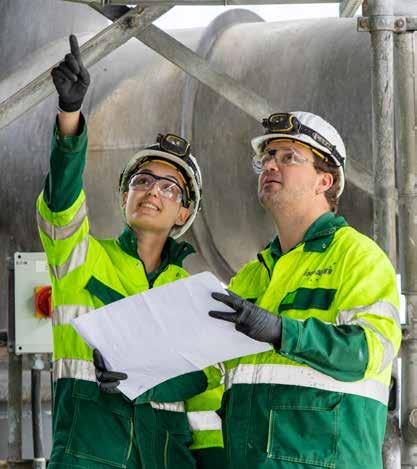
Indaver helps customers by offering the necessary expertise, experience and scale to responsibly manage their waste processing. We do this by explicitly investing in various technologies that can better serve our customers, and we look beyond our core activities and our own sector in this willingness to invest. In turn, this leads to unique total solutions for waste and material management.
We continuously expand our horizons and regularly question the status quo. We don’t do this alone. To accelerate the transition to a circular economy, there must be broad cooperation between companies, knowledge institutions, trade unions and governments. Indaver is a pioneer in this collaboration.

In order to always be able to deliver the best services and products, we keep all our installations in prime condition. This means that we regularly invest in new parts, but also that we use artificial intelligence and other technologies to improve our performance. In addition, we are working to strengthen the synergies between our installations.
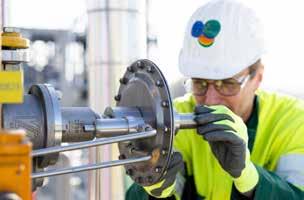
With our core activities, we limit the impact of waste on people, climate and the environment. But we are also fully committed to making a positive impact. This is why we make local energy facilities more sustainable, help our customers to use fewer resources, and create greater support for the circular economy through guest lectures, open days and other events.

By investing in research and development, we strive to find groundbreaking solutions that will help us recover energy and materials more efficiently and protect the environment. We are also looking at new services for our customers to make the circular choice the easy choice.
We are convinced that our unique contribution to the circular economy is the blueprint for growth in the coming years.
Indaver manages and operates facilities in 9 European countries. At each location, we are focused on accelerating the transition to a circular economy. Through targeted investments and acquisitions, we are systematically expanding our radius of action, as well as our capacity to efficiently recover energy and materials from various waste streams.
Waste-to-energy plants
Our waste-to-energy installations extract energy from non-recyclable waste.
Doel (BE), Meath (IE), Aberdeen (UK), Rivenhall (UK, under construction), Ghent (BE, under construction)

Transfer stations
Transfer stations for the safe, temporary storage and processing of waste.
All countries
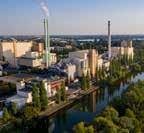
Our specialised installations for the thermal treatment of waste neutralise harmful waste at high temperatures and generate maximum energy.
Hamburg (DE), Biebesheim (DE), Antwerp (BE)

Our installations process organic and green waste into valuable raw materials and sustainable energy. the Netherlands

We store residual materials safely and sustainably at specially equipped landfills. Belgium, Germany, the Netherlands
Our high-tech installations recover valuable materials, such as precious metals, solvents, ferrous and non-ferrous metals and plastics.
Inda-MP (BE), Solvents (UK, BE), P2C (BE), IndaChlor (FR), PMD sorting (BE), bottom ash treatment (BE), Indaver Relight (BE), ARP (NL)
Recovering materials
Under the name Plastics2Chemicals (P2C), Indaver will break down plastic packaging waste into high-quality basic chemicals on an industrial scale. Important: thanks to our innovative technology, these basic chemicals are equivalent to raw materials from fossil streams, which make for use as new packaging - including for food.
In 2024, we started up the P2C pre-treatment plant in Willebroek. This installation will convert the separated plastic waste streams into pellets that are suitable for direct processing in our advanced recycling plant in Antwerp. The construction of that plant was completed in the meantime and we have prepared everything for the full operational start-up in 2025, from guaranteed feedstock to the correct statutes and certificates for our end-products.

We wash, sieve and clean the bottom ashes that remain in our incinerators, because this residual flow also has circular potential. For example, Indaver turns the ashes into raw materials for the construction and metal sectors, among others.
An important evolution in 2024 was the start of metal recovery from the fine fraction of bottom ashes from grate furnaces, specifically gold, silver and copper. By recovering these metals, we create economic and sustainable value.
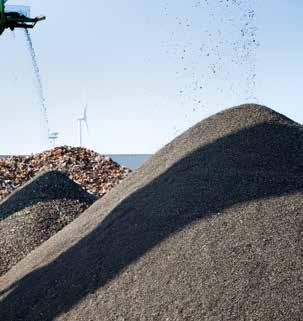

Recovering materials
Antwerp, Belgium
In our Inda-MP installation, we recover precious metals from liquid waste. Indaver takes care of the entire process: from the logistics of the liquid phase to the processing, recycling and return of the refined precious metals. The valuable solvents are further purified by Indaver Solvents, while we safely destroy the hazardous components and convert them into energy.
The total environmental gain since the start of Inda-MP in 2019
+2,500 kg palladium and platinum
+250 kg ruthenium
+20,000 tonnes of solvents
In addition, the team developed solutions for streams containing rhodium and iridium, two very precious metals.
Recovering materials
Various locations in the Netherlands
Indaver has 10 composting plants to process organic waste streams, such as green and organic waste, into high-quality compost. We then make biomass from the woody residual flows to generate electricity. Finally, we also produce green gas and liquid CO2 in Alphen aan den Rijn.
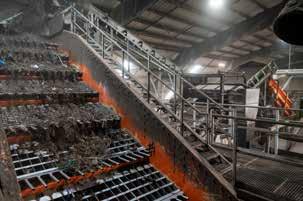
Our focus in 2024
Improve the quality of compost
With an average purity of 97.9%, we are among the top in the Netherlands.
Reprocess residual flows
In Rotterdam, we went from 10% to 5% residual flow –a 50% reduction!
Explore new opportunities
Compost as an ecological alternative to peat.
Indaver is building its largest waste-to-energy plant on the Rivenhall site. It will treat 595,000 tonnes of nonrecyclable municipal waste and similar industrial waste annually, generating up to 65 MW of electricity. In 2024, we won several contracts, which means that 99% of the processing capacity will be in use when we become operational at the end of 2025.
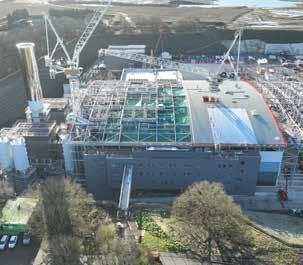
Almost ready to generate up to 65 MW of electricity annually
Ghent, Belgium
In 2024, FOSTER – a collaboration between Indaver and BESIX on behalf of Aquafin – was given the green light for the construction of a new sludge incineration plant on the site of steel producer ArcelorMittal in the port of Ghent. The plant will extract green energy and bottom ash from the sludge left behind after domestic wastewater treatment. Important: ArcelorMittal will use 100% of the locally generated steam and electricity to power its industrial processes.

Hamburg, Germany
In Hamburg, our rotary kilns have been supplying energy to the city grid for years. Thanks to multiple optimisations in 2024, we can now provide as many as 30,000 extra households with clean energy, on top of the 11,300 households we were already supplying.
Antwerp, Belgium
Together with Port of Antwerp-Bruges, Indaver realised the Antwerp North Heat Network (WAN). Since the end of 2023, Boortmalt, the largest malting plant in the world, has been using the residual heat from the Indaver rotary kilns to make malt from barley. The first year proved it was already a great success.

In addition, Indaver supplies process steam to five chemical companies on the left bank of the Scheldt in the Antwerp port region via the ECLUSE steam network. This comes from Indaver and SLECO’s thermal treatment plants in Doel. In 2024, work started on a tunnel under the Scheldt to the right bank, so that chemical giant Evonik can also enjoy our steam to make its energy consumption more sustainable.

In 2024, we started expanding the capacity of our landfill in North and Central Zeeland. We did this by optimally setting up our current landfill, which is a necessary step to ensure our services in the region given that no new landfills may be opened in the future. By doing so, we have relieved our customers’ concerns as much as possible. With the extra capacity, we expect to be able to meet demand until at least 2040.
Antwerp, Belgium
Indaver is currently an indispensable link in the clean circular economy as we do not produce PFAS ourselves, but we do destroy huge volumes of PFAS-containing waste.
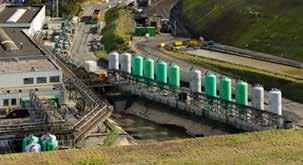
668,000 kg
The amount of PFAS that we remove from society every year – and we do this with the utmost care for the environment.
Join us and contribute to the circular economy
Find the vacancy that suits you by scanning this QR code
Ensuring a clean future together.
© INDAVER 2025R.p.: Karl Huts, Dijle 17 a, BE-2800 Mechelen, Belgium